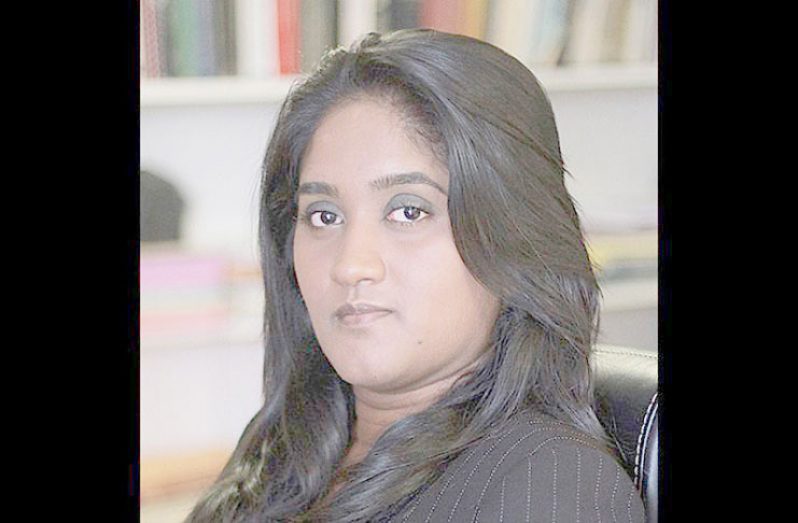THE media play a crucial role in shaping the world through public perception, hence it is of pivotal importance that it be cognizant of the right way to go about shaping stories and views when it comes to domestic violence. This was highlighted by several speakers, last Thursday, at the launching of ‘Guidelines for the Media on Reporting on Interpersonal Violence’.
The document and accompanying engagement with media workers are a follow up to previous work embarked upon to guide the media on the coverage of domestic violence in Guyana, and the role the media personnel play in contributing to eliminating the social scourge, through portrayal of stories and reports.

The projects are being executed as a collaboration among the media, Guyana’s judiciary, the University of Guyana (UG) and UNICEF, to put emphasis on just how an important role the media play in the domestic violence situation.
“It is well known that the media play a crucial role in shaping our world. Their role in covering interpersonal violence is not a job that should be taken lightly,” shared acting Chancellor of the Judiciary, Justice Yonette Cummings-Edwards, as she delivered opening remarks at Thursday’s launch.
“This high acclaim signifies its key role in advocating for policy change and influence the perception of the public at large. The way how it is portrayed and reported will give us an understanding of the story behind the story,” she added.
Also attending Thursday’s workshop were Chief Justice Roxanne George-Wiltshire; UNICEF Deputy Representative, Irfan Akhtar; University of Guyana Vice Chancellor, Dr Paloma Mohammed; and President of the Guyana Press Association (GPA), Nazima Ragubir.
Though media houses are often tempted to sensationalise an incident in the pursuit of increasing sales, Cummings-Edwards cautioned that media houses must find a balance in also not shaping stories in such a way as to contribute negatively to the violence.
“Some of this must be done because of the business aspect of it. Violence sells. But at the same time while graphic images and sensational headlines increase sales, persons who are drawn to these scenes, their views may be shaped in one form or another,” she said.
Mohammed later noted that the removal of certain shocking images and portrayals from the media, does not necessarily negatively affect sales. She gave an example, noting the previous practice of local newspaper, Kaieteur News, which formerly published gruesome images on its front page, leading to the publisher Glen Lall being approached about the issues.
Though Lall was initially reluctant, Mohammed said she was able to show him that the change would not affect sales of his newspaper.
Cummings-Edwards also highlighted that media personnel should not focus only on reporting, but should be analytical in sensitising the public on the causes, and other areas beyond just reporting on the incident.
“We have media coverage of interpersonal violence which can trivialize, sensationalise, or can simplify complex issues, or pivot and highlight critical issues. It is advisable that you stay away from trivializing domestic violence or crimes of passion. Be aware of the fact that the media’s voice is listened to even more than experts on the issue. The power that you have therefore influences and shapes thoughts and help to prevent or cure some of these ills,” she said.
The event was attended by a number of media operatives, who were also given the opportunity to speak of some of the challenges they face in covering interpersonal violence.
Also calling on the media to understand critical role they play in influencing the process, was UNICEF Deputy Representative, Akhtar. While commending those who have gotten involved in fighting against domestic violence, he called for even more partners to get involved in the fight.
“From UNICEF’s side I would like to salute the work of all partners in joining this fight so allow me to thank you, and to call upon more sectors to fight this issue. We need more partners, we need to make it a multi sectoral approach to deal with interpersonal violence, and violence against women and children. Every family, every child must be protected,” he declared.

Akhtar emphasized that the media play and important role in ensuring that domestic violence is not and will never be normal.
“Media are an important pillar in society and an important tool in shifting social values and changing perceptions on many things, including domestic violence,” Akhtar said.
Ragubir, during her remarks, shared that while media operatives have begun to understand the significant role they play, and the need to be more cautious in how they go about shaping stories about domestic violence, consideration needs to start being given to social media commentators, who, despite having scores of followers, at times follow no standard, or principles, in how they go about disseminating information.
Ragubir said she welcomed the guidelines, which come at a most opportune moment, given the abundance of domestic violence cases reported on almost daily.
“There is no doubt these guidelines come at a critical time when interpersonal violence remains a prominent focus of our society and forms part of our daily reporting. The media are often the first responders; we are the bearers of bad news and oftentimes the first resort for someone seeking that often elusive justice. These guidelines, along with others, and the very basic tenants of journalism, ought to be used daily to guide our media workers, whether they be editors, journalist, photographers of videographers,” Ragubir said.
She also called for the guidelines to be continuously updated, and for engagements with the media to be continuous, given that new persons continue to enter the media fraternity regularly and would therefore also need to be apprised of how to properly cover domestic violence incidents.
Chancellor -Caption: Chancellor of the Judiciary, Yonette Cummings-Edwards
UNICEF-Caption: UNICEF Deputy Representative, Irfan Akhtar
Nazima-Caption: GPA President, Nazima Ragubir



.jpg)








